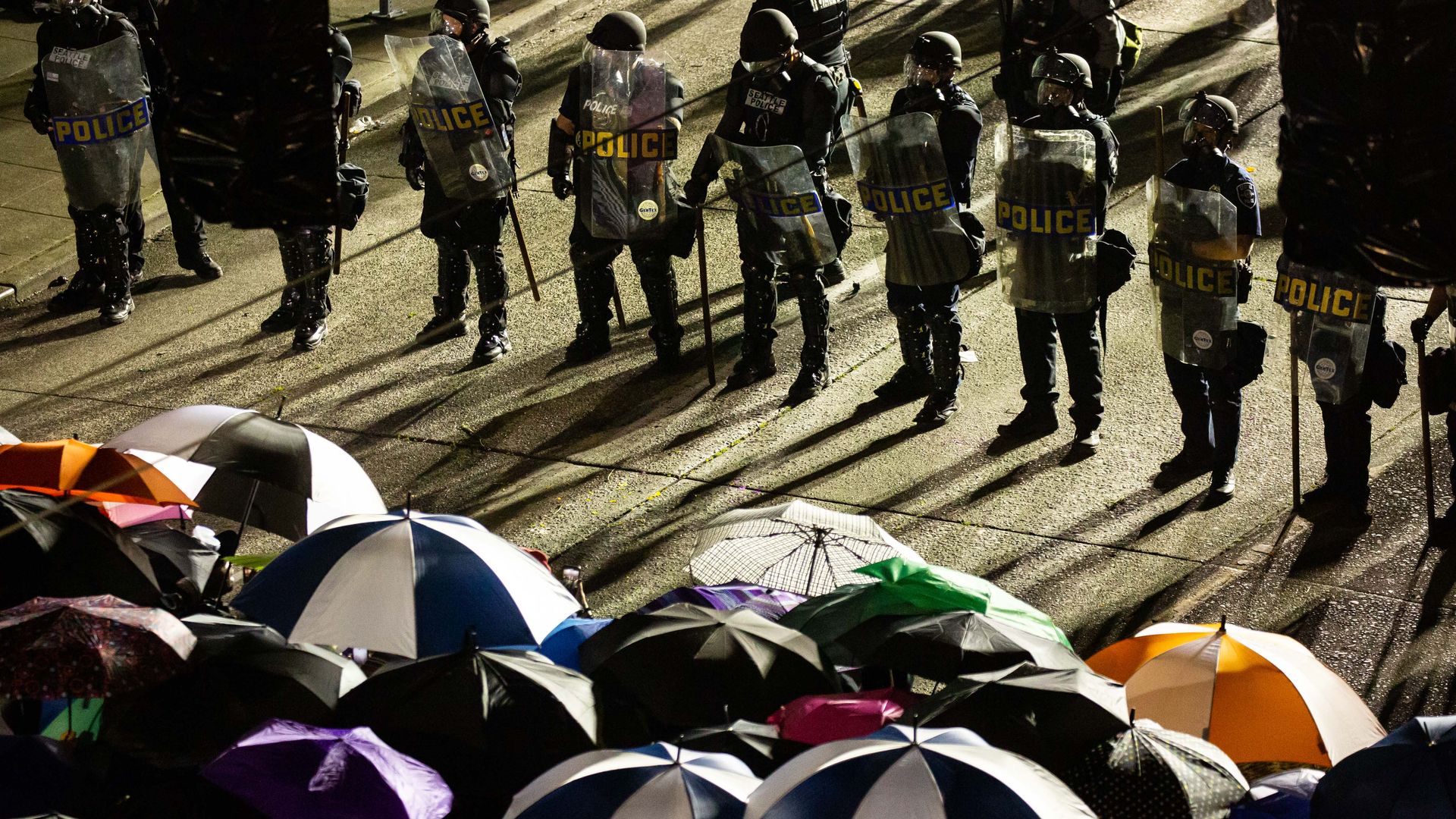Updated Jun 8, 2020 - Politics & Policy
Black Lives Matter demonstrators driving change in policing policies
Add Axios as your preferred source to
see more of our stories on Google.

Demonstrators face off with law enforcement personnel near the Seattle Police Departments East Precinct in Seattle on June 6. Photo: David Ryder/Getty Images

